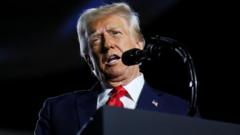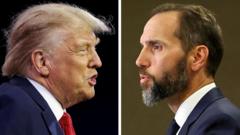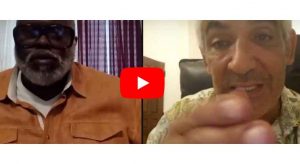David Crisp was caught on undercover video admitting to selling luxury perfume in Russia, violating government sanctions, but HM Revenue and Customs has decided not to pursue criminal charges despite incriminating evidence.
British Perfume Mogul Sidesteps Charges for Breaching Russia Sanctions

British Perfume Mogul Sidesteps Charges for Breaching Russia Sanctions
David Crisp, a seller of high-end perfumes, has avoided criminal prosecution despite admitting to violating UK sanctions against Russia.
David Crisp, a British businessman and the owner of the luxury perfume brand “Boadicea the Victorious,” has admitted to selling his £1,000-a-bottle fragrances in Russia, flouting UK sanctions against the country following its invasion of Ukraine. In an exclusive investigation by the BBC, Crisp was filmed by an undercover investigator who posed as a Las Vegas businessman interested in stocking his perfumes. During the conversation, which was secretly recorded, Crisp acknowledged bypassing government regulations, stating, “We ignore government edicts.”
Despite being detained by HM Revenue and Customs (HMRC) in late 2023 and evidence indicating he concealed illegal sales exceeding £1.7 million, the investigation against Crisp has since been dropped, with no criminal charges filed. Crisp maintains his innocence, asserting that he did not knowingly break sanctions and that business dealings in Russia were known within his company.
Senior Conservative MP Sir Iain Duncan Smith criticized the lack of action against Crisp, emphasizing that failing to prosecute violators sends a troubling message about the UK's commitment to enforcing sanctions. Since Russia’s full-scale invasion, there has reportedly been no successful criminal conviction in the UK for breaches of these trade sanctions.
Crisp's former business partner, David Garofalo, became suspicious of his continued trade with Russia after a whistleblower's claim, leading him to engage private investigators who later exposed Crisp's activities. Garofalo then amassed strong evidence against him, which included shipping documents and product sales in Moscow that aligned with the timeline of sanctions.
Following a High Court ruling conceding to the evidential weight of the undercover footage, Garofalo halted all sales to Russia after taking full control of the company, attributing his actions to Crisp’s knowledge of the sanction violation. Despite compelling evidence, HMRC has yet to follow through with any criminal prosecutions, a situation that has drawn criticism from lawmakers.
Experts like Tim Ash of Chatham House suggest that the UK’s leniency toward violators undermines the effectiveness of sanctions, highlighting the allure of profit in Russia as an ongoing temptation for businesses. The lack of serious consequences for crimes related to sanctions, as noted by Sir Iain Duncan Smith, could embolden further breaches amidst a conflict that continues to claim lives in Ukraine.


















